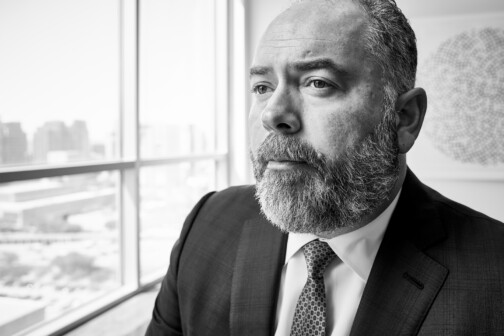
Sen. Robert Deuell, R-Greenville, does not expect to run out of time this legislative session. A family physician whose district includes parts of Dallas County, Duell introduced Senate Bill 303 to reform the Texas Advance Directives Act of 1999 (TADA).
Texas has been a leader on this issue. In 1999, then-Gov. George W. Bush signed landmark legislation providing a framework for resolving disagreements about treatment when care providers consider it medically futile but patients or their families do not want to give up hope. At the time, the law was considered the best in the nation and a model for other states.
TADA was the product of consensus by the Texas Advance Directives Coalition, composed of about two dozen diverse stakeholder groups such as powerful medical interests, left-leaning disability rights advocates and conservative right-to-life organizations.
The law dealt with three kinds of directives: the living will, or directive to physicians; the medical power of attorney; and the out-of-hospital do-not-resuscitate order. The coalition tried to improve TADA in 2007, and the hope is the current misguided debate does not derail future efforts.
A Texas physician who believes that life-sustaining treatment is inappropriate for a terminally or irreversibly ill patient regardless of an advance directive or family’s objections consults an ethics committee for affirmation. The family is notified 48 hours prior to any proceedings and is free to attend.
If the committee agrees with the physician, the family has 10 days to transfer the patient to another facility that is willing to grant the family’s request, during which hospitals must provide life-sustaining treatment. If one cannot be found, the hospital legally can withdraw life-support measures on the 11th day.
Deuell’s bill contains a number of TADA adjustments, including:
• Improving notification and appeal processes for families or surrogates when a do-not-resuscitate order is used.
• Ensuring that artificially administered nutrition and hydration cannot be withdrawn from a patient, unless continuing to provide that treatment would do harm.
• Respecting the conscience of physicians and other health care providers so the law does not require unethical treatment.
• Extending the notification time to a family or surrogate from 48 hours to seven days before an ethics committee meeting.
• Extending the time to find an alternative willing provider from 10 to 14 days.
• Providing the family or surrogate with a patient liaison to help guide them.
• Providing the family or surrogate with a free copy of the patient’s medical record.
• Inviting the family or surrogate to attend the ethics committee meeting where care for their loved one will be discussed.
• Creating reporting requirements for hospitals or hospital systems.
Deuell’s reforms passed the Senate in 2009, but the House did not have the time to act on the measure. Deuell said the state’s 2011 state budget preoccupied legislators, which did not allow them to consider the reforms.
Deuell said he sent a copy of the bill to Texas hospitals to serve as guidelines. According to a 2012 Texas Hospital Association (THA) survey, nearly half of the 200 that responded were using the suggested reforms.
According to the survey, the TADA process was initiated 21 times, and led to a resolution 18 times because either the physicians or surrogates changed their minds, or the patient was successfully transferred or died during the 10-day period.
SB 303 has been endorsed by the Texas Medical Association, Texas Hospital Association, Catholic Health Association-Texas, Texas Alliance for Life, the Texas Catholic Bishops and the Baptist General Convention of Texas.
The bill, Deuell said, “is fair to doctors, the hospitals and the patients.”
Steve Jacob is editor of D Healthcare Daily and author of Health Care in 2020: Where Uncertain Reform, Bad Habits, Too Few Doctors and Skyrocketing Costs Are Taking Us. He can be reached at [email protected].






